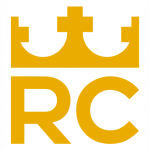

Credits
1.0
Location
Regis College
This enriched theoretical and practical course (3-credit hours) is designed to fulfill the course requirements for the College of Registered Psychotherapist of Ontario (CRPO), the Canadian Association for Spiritual Care (CASC), and the American Association for Marriage and Family Therapy (AAMFT). Theological and spiritual reflection in multicultural contexts is encouraged. Lectures, class discussions, practice counselling and clinical interviewing, instructional videos, reflection papers, final research paper (AD).
BD/3000 Level Students will be able to:
1) To acquire a basic grasp of the various postmodern models of psychotherapy and to select from among these the most applicable for one clinical practice, and to work using this model in class exercises and practice counselling.
2) To reflect upon oneself in terms of how one’s inherent biases and worldview (including things like gender, faith, ethnicity, etc.) impinge upon the one’s ability to work effectively as a psychotherapist.
3) To consider one’s past and present clinical practice and how these theories, practices and guidelines may be best used in current contexts, such as private practice and institutional settings.
4) To make useful links between the major themes of professional theory and praxis from an interdisciplinary standpoint – particularly how religious faith, spirituality and values can effectively integrated into religious and non-religious and evidence-based research and practice.
5) To engage in classroom exercises with one’s peers, designed to concretize the modalities and foster a collaborative sensibility for working in multidisciplinary teams.
At the AD/6000 Level students will be able to:
1) To acquire a high level of knowledge of the various postmodern models of psychotherapy and to select from among them the most applicable modality for one’s clinical work, and to practice using this model in class exercises and practice counselling.
2) To acquire greater depth of understanding oneself in terms of how one’s inherent biases and worldview (including things like gender, faith, ethnicity, etc.) impinge upon the one’s ability to work effectively as a psychotherapist.
3) To acquire a more nuanced conceptualization concerning past and present clinical work and how these theories, practices and guidelines may be best used in current contexts, such as private practice and institutional settings.
4) To explore with greater sophistication the links between the major theories and praxis from an interdisciplinary standpoint – particularly how religious faith, spirituality and values can be more effectively integrated into religious and non-religious evidence-based research and practice.
5) To engage in classroom exercises with one’s peers, demonstrating leadership in using the modalities, and fostering a collaborative sensibility for working in multidisciplinary teams.
A detailed course schedule is available for download.
Week 1
Week 2
Week 3
Week 4
Week 5
Week 6
Week 7
Week 8
Week 9
Week 10
Week 11
Week 12